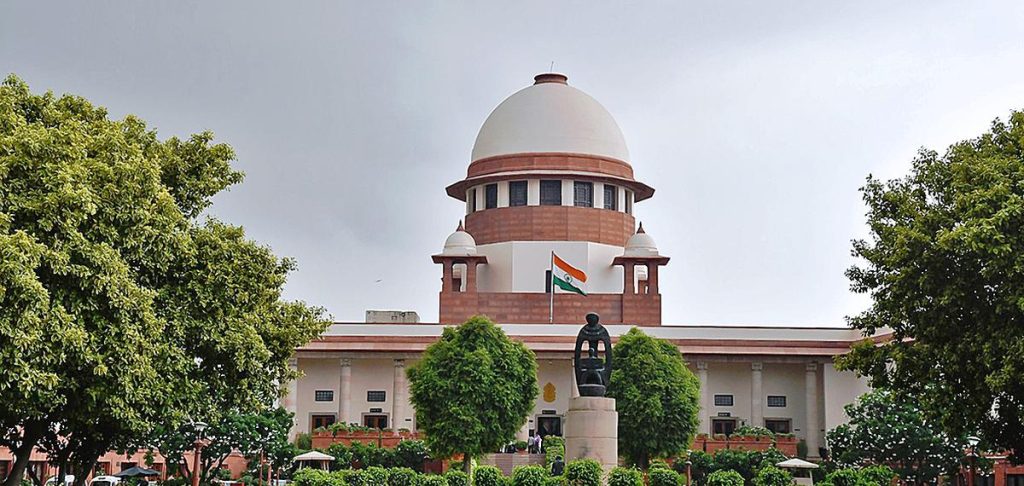Top Stories
Supreme Court Refers AYUSH Doctors’ Parity Case to Larger Bench

The Supreme Court of India has referred the issue of parity between practitioners of indigenous medical systems, collectively known as AYUSH (Ayurveda, Unani, and Homeopathy), and allopathic doctors to a larger bench. This decision, made on October 20, 2023, follows a hearing where the court considered challenges against differing retirement ages and service conditions for these two groups of medical practitioners.
During a session on May 13, a bench composed of Chief Justice B.R. Gavai and Justice K. Vinod Chandran reserved its order concerning the retirement age disparities. The justices noted a “divergence of opinion” in earlier rulings, which necessitated a more authoritative examination of the matter by a larger bench.
The current legal framework allows states to extend the service of AYUSH doctors beyond their existing retirement age, up to the age applicable to allopathic doctors. However, this extension comes without the regular pay and allowances. Those AYUSH practitioners permitted to continue their service would receive half pay, which would be adjustable against their pensions or final emoluments based on the eventual ruling.
This legal challenge originated when the Rajasthan government increased the retirement age for allopathic doctors from 60 to 62 years in 2016 due to a shortage of medical personnel. AYUSH doctors contested this policy, arguing that it violated Article 14 of the Indian Constitution, which guarantees the right to equality, since they perform similar patient care roles. The Rajasthan High Court initially supported this argument, prompting the state government to escalate the issue to the Supreme Court.
The representation for the state and the AYUSH practitioners included Solicitor General Tushar Mehta and other legal counsels. The Supreme Court highlighted that should AYUSH doctors be deemed eligible for parity, they would be entitled to full pay and arrears for the duration of their extended service.
Approximately 1,000 doctors could be directly impacted by the Supreme Court’s forthcoming decision. The larger bench will now delve into the question of equitable treatment for AYUSH doctors in comparison to their allopathic counterparts, a case that has significant implications for practitioners across the country. This ruling could potentially reshape the landscape of medical service conditions in India, emphasizing the importance of parity in healthcare professions.
-

 World5 months ago
World5 months agoSBI Announces QIP Floor Price at ₹811.05 Per Share
-

 Lifestyle5 months ago
Lifestyle5 months agoCept Unveils ₹3.1 Crore Urban Mobility Plan for Sustainable Growth
-

 Science4 months ago
Science4 months agoNew Blood Group Discovered in South Indian Woman at Rotary Centre
-

 World5 months ago
World5 months agoTorrential Rains Cause Flash Flooding in New York and New Jersey
-

 Top Stories5 months ago
Top Stories5 months agoKonkani Cultural Organisation to Host Pearl Jubilee in Abu Dhabi
-

 Sports4 months ago
Sports4 months agoBroad Advocates for Bowling Change Ahead of Final Test Against India
-

 Science5 months ago
Science5 months agoNothing Headphone 1 Review: A Bold Contender in Audio Design
-

 Top Stories5 months ago
Top Stories5 months agoAir India Crash Investigation Highlights Boeing Fuel Switch Concerns
-

 Business5 months ago
Business5 months agoIndian Stock Market Rebounds: Sensex and Nifty Rise After Four-Day Decline
-

 Sports4 months ago
Sports4 months agoCristian Totti Retires at 19: Pressure of Fame Takes Toll
-

 Politics5 months ago
Politics5 months agoAbandoned Doberman Finds New Home After Journey to Prague
-

 Top Stories5 months ago
Top Stories5 months agoPatna Bank Manager Abhishek Varun Found Dead in Well









